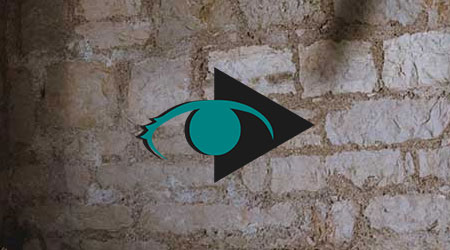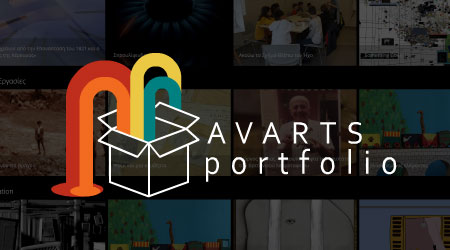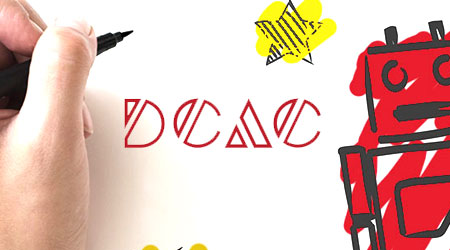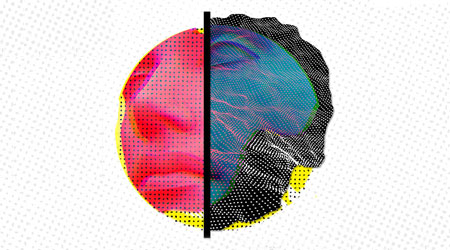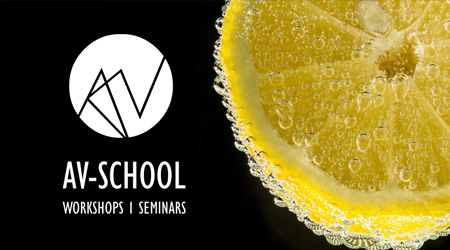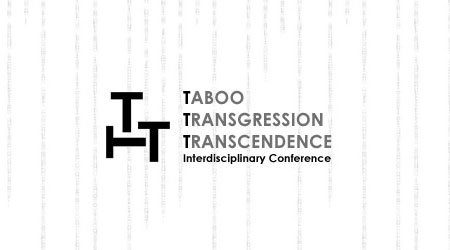Computer Art – Internet Art
Teaching Staff: Tsiridou Tania
Course Code: AVA943
Course Category: Deepening Knowledge
Course Type: Elective
Course Level: Undergraduate
Course Language: Greek
Delivery method: Lectures
Semester: 9th
ECTS: 5
Teaching Units: 3
Teaching Hours: 3
E Class Page: https://e-class.ionio.gr/courses/DAVA142
Teaching Structure:
| Activity | Semester Workload |
|---|---|
| Lab Lectures | 26 |
| Tutoring Lectures | 13 |
| Literature Study and Analysis | 56 |
| Practice and Preparation | 30 |
| Course Total (ECTS: 5) | 125 |
The internet is an unprecedented phenomenon of a mass, nonlinear transmission of information from all directions and as such is transforming the way we approach and think about the world. Consequently it redefines the way we produce, display and perceive art. The course discovers and experiments with cyberspace as a space for artistic expression and exchange. Τhe characteristics, thematics and practices that constitute the language and aesthetics of Internet Art are being investigated and analysed. The emphasis is placed on its close relationship to technology and on its ongoing transformation. The course is project oriented highlighting at the same time the theoretical and conceptual background and the application of technology.
The main goal is to gain a deep understanding of the phenomenon of the internet as a means of artistic creation and reflection and to make use of its communicative and interactive possibilities.
Τhe course encourages participants to practice on and experiment with the specific technologies and techniques they have acquired in previous classes and to enhanced and express their critical attitude towards the internet.
1st Week
General presentation of the subject and the objectives of the course (concepts and theoretical clarifications). The history of the internet as a result of technological developments: Overview and categorization of the internet technologies. Laboratory: Creating a personal blog to capture and exchange information and actions within the course
2nd Week
Historical background of Internet Art: Linking internet art to past art movements (dada, conceptual art, postal art, etc.). Features and themes of internet art. Laboratory: Initial planning for the development of a project: level of idea / level of technology
3rd Week
Internet services (web, e-mail, DNS, file transfer, data storage, etc). The structure of the internet and the architecture of the www (identifying data by URL, HTTP protocol, client-server communication, etc.). The Internet as an information system in continuous change. The internet as a communication platform. The semantic web. Laboratory: Website Types. The HTML language (application). Planning and organization of the initial material for the development of the work plan.
4th Week
Net Literature / Net Poetry. Types of interaction. Hypertext and hyperlink. Non-linear information flow, root structures. Laboratory: Navigation design. Examples and application. Laboratory: CSS: Monitoring work plans and problem solving.
5th Week
The internet as a public space: Social interaction, Cyber- Relationships and “Reality". Activism and collective action as an act of resistance to the aesthetic and the political status / the commercialization of the internet. Social Networks (examples and discussion). Summary and categorization of the internet technologies: Analysis of projects and the technology applied.
6th Week
Cyberspace and its relationship to the "real world”: Virtual worlds, virtual communities. Identity on the Internet. Online games created by artists (examples and discussion).
7th Week
Internet art as a critical act to the aesthetic, digital and social codes (parody): Creative misinformation (presentation of projects and discussion.)
8th Week
Telepresence, Post Art, Junk Mail Art, Software Art, Generative art). (examples and discussion). Laboratory: Javascript
9th Week
Web-based collaborative projects. Interactive projects in the form of streaming video, audio (examples and discussion). Laboratory: Processing technology for web applications (part 1) Task tracking and problem solving.
10th Week
Databases and data visualization. Email art, junk e-mail art. Internet performance. (Presentation of examples and discussion) Laboratory: Visualization technologies for databases (part 1). Task tracking and problem solving.
11th Week
Automation, Search Engine Craft, ASCII Code Works, Internet Radio (examples and discussion). Laboratory: Database visualization technologies (part 2). Analysis of online art projects in relation to the applied. and experimentation.
12th Week
Cyberformance with multiple users, online games created by artists (examples and discussion). Post Internet Art and future aesthetic and conceptual developments. Laboratory: Database visualization technologies (part 3).
13th Week
Summary of the main topics and subjects of the course. Presentation of the semester projects and discussion.
Selected texts from diktion.wordpress.com (created for the needs of the course).
Presenting and analysing existing projects, experimentation in the lab, group cooperation in gathering / storing information and data.
Enhanced by multimedia content.
The learning process is supported by the asyncrhonous e-learning platform e-class.
A personal project and a documentation of its theoretical basis and its work flow.
Back
| << | < | April 2024 |
> | >> | ||
| Mo | Tu | We | Th | Fr | Sa | Su |
1 |
2 |
3 |
4 |
5 |
6 |
7 |
8 |
9 |
10 |
11 |
12 |
13 |
14 |
15 |
16 |
17 |
18 |
19 |
20 |
21 |
22 |
23 |
24 |
25 |
26 |
27 |
28 |
29 |
30 |
|||||
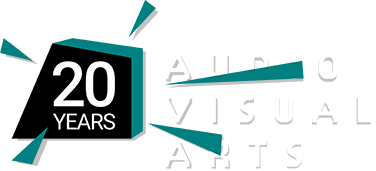


 Computer Art – Internet Art
Computer Art – Internet Art